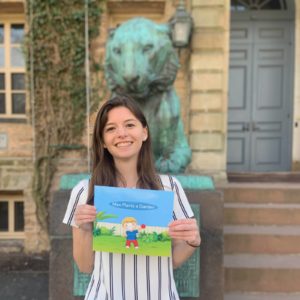This semester, as I return to writing for PCUR, I will be publishing a series of posts describing my experience with the graduate school application process, applying to a variety of developmental psychology PhD programs. Throughout the process, I was fortunate enough to have guidance from my independent work adviser and other senior members of my research lab on campus. However, even with this support, I often found that the process was incredibly opaque. I spent hours searching for answers to seemingly simple questions, often never coming to a definitive conclusion. I hope to use this series of posts to shed some light on the many facets of the process. Although I can only speak to my personal experience, I hope to provide valuable information that can be helpful to students from a variety of disciplines.

Before getting into the nitty gritty of the application process itself, the first step is deciding whether or not you want to go to graduate school in the first place. Graduate school, especially PhD programs, are long, so before you commit to spending up to 6 years in a program, it is important to make sure grad school is the right path for you.
For me, the idea of graduate school was introduced to me at the end of high school. I spent a summer volunteering in a psychology lab and the PI of the lab suggested to me that, if I had enjoyed the work, I could get more experience in college and consider applying to graduate school if I was still interested in the field. And, that’s exactly what I did. However, it is definitely very common for people to begin considering graduate school closer to the end of college.
Regardless of when you first begin considering graduate school, one of the most important experiences to have in order to decide if a PhD is right for you is to experience what it is like to do research full time, whether in the lab, in the field, in an archive, etc. Although many college students have the opportunity to work as a part-time research assistant in a lab during the year, this may not give you an accurate idea of what research in a graduate program will feel like. Spending 10 hours a week in lab is very different from working full-time. Throughout my conversations with potential advisers at the graduate programs I applied to, they were most curious about my full-time lab experiences.
I was able to engage in these full-time, immersive lab experiences during my first year (see my reflection on that experience here), sophomore, and junior summers. I realized that I really enjoyed being in the lab environment from 9am-5pm and I appreciated the opportunity to dive deeply into multiple different projects and juggle different types of tasks throughout the day. Even after going home in the evenings, I would find myself opening my laptop to run one more line of code in my data analysis, or keep working on creating stimuli for an experiment. Having these experiences during college prepared me to apply to begin my graduate program right after graduation. Find tips on how to find summer research opportunities under the “Research” section of this post. However, if you don’t have time, or choose to pursue different summer opportunities while in college, many students also choose to take time off after graduation to get some full-time research experience before applying to graduate school.
Also, be sure to talk to professors, current graduate students, post-docs, even your preceptors, and ask them what their graduate school experience was like. Everyone’s experience in academia is different, but I found it extremely helpful to talk to people who were doing the type work I hoped to do one day–like my thesis advisor and post-docs in my lab. These conversations helped me understand how their graduate school research set them up for success and determine if graduate school was the right path to get me where I ultimately wanted to go.
If you are at all interested in the possibility of graduate school, talk to your research mentors, find opportunities to immerse yourself in research, and reach out to current or past students that have completed the process. In addition to my adviser and other senior lab members, the most valuable resources for me were current graduate students or people who had recently completed the application process. Stay tuned to hear more about my process!
–Ellie Breitfeld, Social Sciences Correspondent

